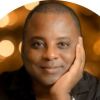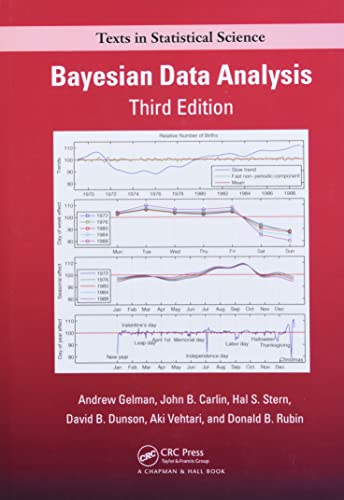10 Statistics Books That Separate Experts from Amateurs
Recommended by Hannah Fry, Kirk Borne, and Noel Cressie for mastering Statistics Books






What if you could decode the secrets behind data that shape our world? Statistics isn’t just numbers on a page — it’s the language of informed decisions, from healthcare advances to climate policy. As data floods every corner of life, understanding statistics has never been more urgent or empowering.
Experts like Hannah Fry, a mathematician known for making data captivating, and Kirk Borne, principal data scientist at Booz Allen, rely on certain books to deepen their grasp of statistical thinking and Bayesian inference. Their choices reveal a blend of clarity, practical tools, and nuanced theory that guide the curious through data’s complexities.
While these expert-curated books provide proven frameworks, readers seeking content tailored to their specific background, skill level, and goals might consider creating a personalized Statistics book that builds on these insights and fits your unique learning path.
Recommended by Hannah Fry
Mathematician and science communicator
“An important and comprehensive new book”
by David Spiegelhalter··You?
by David Spiegelhalter··You?
What started as David Spiegelhalter's dedication to improving public understanding of data has resulted in this accessible guide to statistical thinking. You learn how to approach real-world problems using data—from medical screenings to crime analysis—by clarifying questions and interpreting answers rather than just crunching numbers. Chapters break down concepts like risk communication and probability in ways that demystify statistics for the curious but cautious learner. This book suits anyone looking to build a better intuition for data analysis without getting lost in heavy mathematics, especially professionals and students needing practical statistical insight.
by Andrew Gelman, Jennifer Hill, Aki Vehtari··You?
by Andrew Gelman, Jennifer Hill, Aki Vehtari··You?
Gelman's previous notions about regression as purely theoretical shifted after exploring this book's practical, example-driven approach. Unlike most texts that dwell on abstract formulas, this book plunges into real social research challenges—handling missing data, determining sample sizes, and navigating causal inference with hands-on R and Stan code. Chapters devoted to logistic regression and generalized linear models (GLMs) guide you through sophisticated methods without drowning in derivations. If you want to apply regression techniques effectively in social science contexts, this book provides the tools and insights, though those seeking purely theoretical treatment might find it less suitable.
by TailoredRead AI·
This personalized book provides a focused and tailored approach to mastering core statistical concepts and their practical applications. It offers a structured exploration of foundational theories such as probability, hypothesis testing, and regression analysis, while integrating these with real-world examples relevant to your specific background and goals. The book's personalized framework cuts through generic advice, delivering targeted insights that fit your unique context and skill level. It emphasizes actionable strategies for analyzing data effectively, interpreting results accurately, and applying statistical methods confidently within your domain. By addressing both conceptual understanding and application, this tailored approach ensures efficient learning aligned with your objectives.
by Richard McElreath··You?
by Richard McElreath··You?
This book changed my view on Bayesian statistics by pushing beyond formulas to practical understanding. Richard McElreath, with his background in human evolutionary ecology and directorship at the Max Planck Institute, takes you through statistical modeling with hands-on R and Stan examples, emphasizing the why behind each step. You'll learn to build and interpret causal models using directed acyclic graphs, handle complex data issues like measurement error, and apply advanced multilevel modeling techniques. It's a fit for anyone ready to move from theoretical statistics to confident, real-world application, especially those comfortable with coding and eager to grasp the assumptions behind their analyses.
by Neil J. Salkind, Bruce B. Frey··You?
by Neil J. Salkind, Bruce B. Frey··You?
When Neil J. Salkind shifted his focus from cognitive development to child and family policy, he realized the widespread anxiety many have about statistics and set out to change that. This book demystifies statistical concepts with a conversational style and humor, guiding you through SPSS and key techniques like correlation, regression, and analysis of variance. You'll find new real-world examples and interactive tools designed to help you grasp statistical procedures and interpret results confidently. It's best suited for students and professionals who struggle with statistics but need to apply it effectively in research or policy analysis.
by Ben Lambert··You?
by Ben Lambert··You?
Ben Lambert, a researcher at Imperial College London with a decade of experience in applied statistical inference and a former University of Oxford scholar, delivers an accessible introduction to Bayesian statistics tailored for students new to the field. You’ll learn foundational concepts like probability, Bayes' rule, and computational approaches, alongside practical skills using R and Stan software. The book’s structured chapters gradually build your understanding, covering regression and hierarchical models with exercises and online tutorials to reinforce learning. This guide suits anyone aiming to gain confidence in statistical inference with a focus on Bayesian methods, but if you’re seeking an advanced theoretical treatise, it might feel too instructional.
This personalized statistics book provides a tailored framework for mastering statistical reasoning through daily, actionable tasks designed specifically for your background and goals. It focuses on practical skill-building in core areas such as data interpretation, probability, hypothesis testing, and statistical tools usage. The content cuts through generic advice to fit your specific context, offering step-by-step guidance that enhances both conceptual understanding and applied competence. By emphasizing daily practice, it addresses the common gap between theory and implementation, helping you internalize statistical concepts efficiently. This tailored approach ensures that you develop a functional grasp of statistics relevant to your industry and objectives, making complex ideas accessible and actionable.
Recommended by Tim @Realscientists
Staff Scientist and science communicator
“If you are interested in learning programming, there are lots of great tutorials. For data analysis, R and the R 4 data science book is a great way to go and for general R syntax, there is the swirl learning package /20” (from X)
by Hadley Wickham, Mine Cetinkaya-Rundel, Garrett Grolemund··You?
by Hadley Wickham, Mine Cetinkaya-Rundel, Garrett Grolemund··You?
What if everything you knew about learning data science was wrong? Hadley Wickham, Chief Scientist at RStudio and a key figure in the R community, offers a guide that strips away unnecessary complexity and focuses on what you really need to do with data. You’ll learn to import, tidy, transform, visualize, and model data using R and the tidyverse packages, gaining hands-on skills that help you handle real datasets effectively. Chapters on connecting to spreadsheets, databases, and web data expand your toolkit beyond basics. If you want a practical entry into data science without drowning in theory, this book will fit your needs, though it assumes you're ready to engage actively with R programming.
Recommended by PsycCRITIQUES
“writing for real people with real data. From the very first chapter, the engaging writing style will get readers excited about this topic”
by John Kruschke··You?
by John Kruschke··You?
When John K. Kruschke first realized the limits of traditional statistical methods, particularly the pitfalls of p-values, he set out to create a resource that makes Bayesian data analysis accessible to those new to the approach. Drawing from his extensive background in psychology and statistics, Kruschke offers clear explanations paired with concrete examples using R, JAGS, and Stan, guiding you through everything from Bayesian inference basics to generalized linear models. The book’s structure, including exercises with explicit goals, helps you build practical skills for analyzing diverse data types, making it especially useful if your work involves psychological or social science research. While demanding, it’s ideal for graduate students or professionals eager to move beyond classical statistics towards a more nuanced understanding.
Recommended by Noel Cressie
University of Wollongong, Statistics Expert
“This pitch-perfect exposition shows how Bayesian modeling can be used to quantify our uncertain world. Ecologists―and for that matter, scientists everywhere―are aware of these uncertainties, and this book gives them the understanding to do something about it. Hobbs and Hooten take us on a signposted journey through the culture, construction, and consequences of conditional-probability modeling, readying us to take our own scientific journeys through uncertain landscapes.”
by N. Thompson Hobbs, Mevin Hooten··You?
by N. Thompson Hobbs, Mevin Hooten··You?
When N. Thompson Hobbs and Mevin Hooten developed this primer, they aimed to bridge the gap between ecological research and Bayesian statistics. You learn to grasp complex Bayesian concepts like hierarchical models and Markov chain Monte Carlo without getting lost in computer code, thanks to clear explanations and a focus on underlying principles. The book walks you through crafting proper statistical expressions that you can apply to research and policy-making, making it especially useful if you work with ecological data or environmental modeling. It’s particularly suited for ecologists and environmental scientists who want a solid statistical foundation without drowning in technical jargon.
Recommended by Kirk Borne
Principal Data Scientist at Booz Allen
“Must see the brilliant book "R for Everyone: Advanced Analytics and Graphics" at by @jaredlander — Check out the R Conference in Washington DC by @rstatsdc #BigData #DataScience #Rstats #Statistics #Coding #DataScientists” (from X)
by Jared Lander··You?
by Jared Lander··You?
When Jared Lander challenges the usual R programming books that often assume prior statistical knowledge, he opens the door for newcomers to statistical modeling and graphics. You’ll learn to navigate R and RStudio, manipulate data structures like data.frames and matrices, and build both linear and nonlinear statistical models. Chapters like those on Elastic Net regularization and Bayesian methods give you insight into preventing overfitting, while the knitr section helps you prepare dynamic reports. This book suits anyone aiming to master modern data analysis workflows with R, especially if you want a clear, example-driven path without getting lost in jargon.
by Andrew Gelman, John B. Carlin, Hal S. Stern, David B. Dunson, Aki Vehtari, Donald B. Rubin··You?
by Andrew Gelman, John B. Carlin, Hal S. Stern, David B. Dunson, Aki Vehtari, Donald B. Rubin··You?
When Andrew Gelman and his coauthors developed this book, their goal was to clarify Bayesian methods from a practical standpoint, cutting through abstract theory to show how you can actually apply these techniques to real data problems. You’ll learn not only the fundamentals of Bayesian inference but also advanced approaches like nonparametric modeling, Hamiltonian Monte Carlo, and variational Bayes, supported by concrete examples throughout. The book’s structure serves a broad audience—from undergraduates new to Bayesian thinking to researchers needing sophisticated modeling tools—making it a solid reference if you want to deepen your statistical modeling skills with current Bayesian approaches.
Get Your Personal Statistics Strategy in 10 Minutes ✨
Stop following generic advice that doesn't fit your situation. Get targeted strategies without reading 10+ books.
Join 15,000+ Statistics enthusiasts who've personalized their approach
Conclusion
These 10 books reveal three key themes: the power of Bayesian thinking to unravel uncertainty, the importance of practical tools like R programming for data wrangling, and the value of accessible explanations to break down statistical anxiety.
If you’re new to statistics, start with Statistics for People Who Hate Statistics and The Art of Statistics to build confidence. For hands-on skills, combine R for Data Science and R for Everyone. To deepen your Bayesian expertise, explore Statistical Rethinking alongside Bayesian Data Analysis.
Once you've absorbed these expert insights, create a personalized Statistics book to bridge the gap between general principles and your specific situation. This tailored approach can accelerate your mastery and help you apply statistics with precision in your field.
Frequently Asked Questions
I'm overwhelmed by choice – which book should I start with?
Start with Statistics for People Who Hate Statistics for a gentle introduction that eases anxiety. Pair it with The Art of Statistics to build intuitive understanding before diving into more technical texts.
Are these books too advanced for someone new to Statistics?
Not at all. Several books like Statistics for People Who Hate Statistics and A Student’s Guide to Bayesian Statistics are designed to be approachable for beginners while still offering depth.
What's the best order to read these books?
Begin with accessible overviews, then move to practical tools like R for Data Science. Follow with Bayesian-focused books like Statistical Rethinking as your confidence grows.
Can I skip around or do I need to read them cover to cover?
You can skip around based on your needs. For example, jump to R for Everyone if programming is your priority or explore Bayesian Models if ecology interests you.
Which books focus more on theory vs. practical application?
Bayesian Data Analysis and Statistical Rethinking delve into theory, while R for Data Science and Statistics for People Who Hate Statistics prioritize practical application.
How can I apply these general statistics books to my specific goals or industry?
These expert books offer foundational knowledge, but personalized books can tailor content to your experience, goals, and industry. Consider creating a personalized Statistics book to get targeted insights that complement these classics.
📚 Love this book list?
Help fellow book lovers discover great books, share this curated list with others!
Related Articles You May Like
Explore more curated book recommendations









